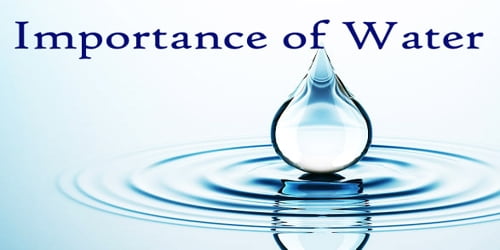Water is an important element of the environment. We cannot live a single day without it. It is also important for other living existence. Pure water is essential for health. But sometimes, we misuse water in different ways. For example, we keep water running when we brush teeth, wash dishes shave, wash vehicles, have a bath, etc. It is a sorrowful matter that water is polluted in a variety of ways. Men pollute water by discarding into it domestic and industrial wastes, human waste and filth, poisonous chemicals and corrosives. In Bangladesh, water usage patterns show that 96% of water is used for agriculture, three percent for domestic use and one percent for industrial use. Of the total water consumed for these various purposes, 69% comes from groundwater sources. Thus, depletion of groundwater sources is occurring at an alarming rate. Chemical fertilizers and insecticides are used in the fields by the farmers. Rain and floods wash away some of these chemicals and mix, them with the water of rivers, ponds, and canals. Besides these, mills and factories throw their wastes into rivers and canals and pollute the water. Boats, steamers, launches throw oil, food and human waste into the water of rivers and canals. Oil tankers often clean out their tanks at sea and powerhouses release hot water into the river which kills fish and plants. A lot of latrines are built on the banks of rivers and canals. A number of ‘kutcha’ drains run into rivers and canals, which carry human waste and filth and let them fall into the water. The government (Bangladesh) established policies and strategies such as the National Policy for Safe Water Supply (1998), National Water Policy (1999), National Policy for Arsenic Mitigation (2004) and the Water Safety Framework (2011). We can save our earth if we minimize pollution through proper management of waste. People should also be made aware of the ways and means to keep water pure and clean and not polluted.
Importance of Water
















